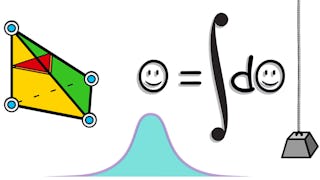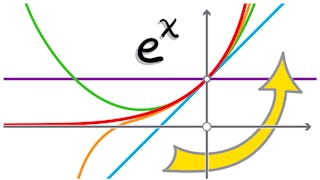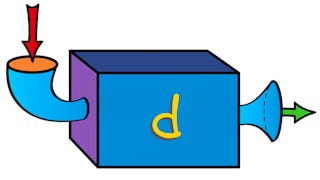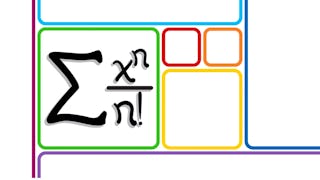Calculus is one of the grandest achievements of human thought, explaining everything from planetary orbits to the optimal size of a city to the periodicity of a heartbeat. This brisk course covers the core ideas of single-variable Calculus with emphases on conceptual understanding and applications. The course is ideal for students beginning in the engineering, physical, and social sciences. Distinguishing features of the course include: 1) the introduction and use of Taylor series and approximations from the beginning; 2) a novel synthesis of discrete and continuous forms of Calculus; 3) an emphasis on the conceptual over the computational; and 4) a clear, dynamic, unified approach.

Enjoy unlimited growth with a year of Coursera Plus for $199 (regularly $399). Save now.

(546 reviews)
Skills you'll gain
Details to know
26 assignments
See how employees at top companies are mastering in-demand skills

There are 4 modules in this course
Our first look at integrals will be motivated by differential equations. Describing how things evolve over time leads naturally to anti-differentiation, and we'll see a new application for derivatives in the form of stability criteria for equilibrium solutions.
What's included
5 videos2 readings9 assignments
Since indefinite integrals are really anti-derivatives, it makes sense that the rules for integration are inverses of the rules for differentiation. Using this perspective, we will learn the most basic and important integration techniques.
What's included
6 videos8 assignments
Indefinite integrals are just half the story: the other half concerns definite integrals, thought of as limits of sums. The all-important *FTIC* [Fundamental Theorem of Integral Calculus] provides a bridge between the definite and indefinite worlds, and permits the power of integration techniques to bear on applications of definite integrals.
What's included
3 videos3 assignments
The simple story we have presented is, well, simple. In the real world, integrals are not always so well-behaved. This last module will survey what things can go wrong and how to overcome these complications. Once again, we find the language of big-O to be an ever-present help in time of need.
What's included
4 videos1 reading6 assignments
Instructor

Offered by
Explore more from Math and Logic
 Status: Free
Status: FreeUniversity of Pennsylvania
 Status: Free
Status: FreeUniversity of Pennsylvania
 Status: Free
Status: FreeUniversity of Pennsylvania
 Status: Preview
Status: PreviewUniversity of Pennsylvania
Why people choose Coursera for their career




Learner reviews
546 reviews
- 5 stars
85.74%
- 4 stars
11.88%
- 3 stars
1.46%
- 2 stars
0.36%
- 1 star
0.54%
Showing 3 of 546
Reviewed on May 6, 2020
Thank you, this was very helpful and helped me prepare for college !!
Reviewed on Mar 4, 2021
Students should be able to use trig and calculus cheat sheets while working problems. I would suggest they be provided and approved by the instructor.
Reviewed on Feb 7, 2017
I will be sad when I finish Chapter 5. Cant wait for Multi variable calculus

Open new doors with Coursera Plus
Unlimited access to 10,000+ world-class courses, hands-on projects, and job-ready certificate programs - all included in your subscription
Advance your career with an online degree
Earn a degree from world-class universities - 100% online
Join over 3,400 global companies that choose Coursera for Business
Upskill your employees to excel in the digital economy
Frequently asked questions
To access the course materials, assignments and to earn a Certificate, you will need to purchase the Certificate experience when you enroll in a course. You can try a Free Trial instead, or apply for Financial Aid. The course may offer 'Full Course, No Certificate' instead. This option lets you see all course materials, submit required assessments, and get a final grade. This also means that you will not be able to purchase a Certificate experience.
More questions
Financial aid available,

